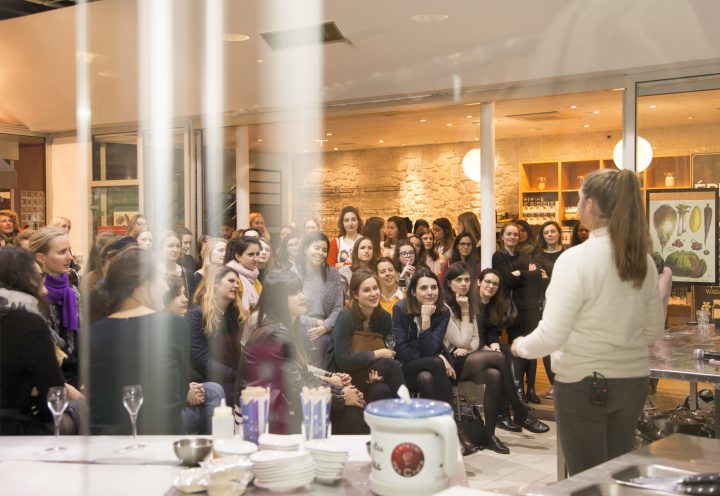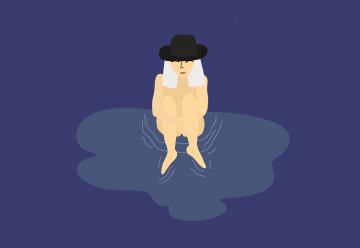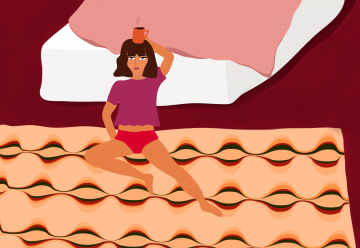In July, I happened to watch the Tour de France. To fly over France by helicopter, to admire the colors of a country unlike any other. To see my compatriots stand on top of a ruined castle disguised as knights or draw works of art in their garden to capture 5 seconds of television. To see those caravans hanging on to the top of a pass and to imagine those moments of celebration lived with family or friends, with the excuse of watching men pass on a bike.
The Tour de France this year had my affection.
I even saw Julian Alaphilippe‘s Instagram account go from 50k to 457K. I watched Thibaut Pinot‘s tears in the report that France 2 did on him. I read the article in Le Monde on Romain Bardet, the famous “I would not have arrived there if”… that I don’t miss for anything in the world.
I also learned that the Tour in 2019 had 176 riders, 21 stages, 3480 km of races, 744 communes ridden through, a high point at 2770 m, “short” stages of 117 km and stages of 230 km. And then 10 to 12 million viewers.
Of course, I have also read articles about women’s cycling. Because the Women’s Tour de France “exists,” a little. Or almost. It is not clear what term to use for this “Race by the Tour” a Tour de France that is limited to… a race against the clock.
In short, cycling is probably one of the least egalitarian sports on this planet, whether in terms of salaries, media coverage or even competitions… This is paradoxical when you consider that cycling has been an instrument of emancipation for women. Long frowned upon by society or even “forbidden” by doctors who call it “the infertility machine”, the bicycle nevertheless allowed women to travel alone, without a husband, at a time when the automobile was still inaccessible. And let’s not forget that even later, if some women get their driver’s licenses, they don’t get behind the wheel.
In short I watched the Tour of France. And then I looked at the podium.
Those three small steps on which these men climb in yellow, green or polka dots, imberbes and carved in stone, heroes of one day forever, cheered by a crowd 60% male and 40% female. I watched two pretty women give them a bouquet and a stuffed toy, with a smile on their faces, before kissing them on their cheeks, salty from the effort of the feat and moving slightly to continue applauding.
And it shocked me.

Frankly, how can it be otherwise?
And then there was that petition to put an end to these “podium girls”.
When I talked about it around me, I witnessed several reactions worthy of a play by Edmond Rostand.
Fatalistic: “It’s tradition, it’s always been like that!”
Economic: “It’s a job like any other.”
Hypocritical: ” Did we ask them what they thought of it?”
Off-topic: “But these women have got nothing to do with it.”
Paternalistic: “It’s a way for them to make a bit of money.”
Almost feminist: “They are free to do this job or not.”
These sentences are all true, in a certain way.
But in my head, I do not know why, spontaneously I made the connection with the current management of ecology by governments.
What I am saying is that to avoid immediate constraints, a great cause is sacrificed.
For example, to avoid a slowdown in economic growth we choose to continue to destroy our planet.
To remove these podium hostesses would be to be disatisfy a few girls who had a lucrative mission for a month in their lives. But to remove these podium hostesses would above all be to delete the images that shape society.
The image of a man in action putting his arms in the air to celebrate his victory and of a woman, a spectator, applauding in the shadows. The image is of supremacy, a strong sex and of passive, submissive and silent women. Erased.
How can we choose not to sacrifice twenty women for the benefit of the millions of others who watch them?
And then these women, polyglot and beautiful, will find another job. Just as the total removal of plastic would lead to the creation of new solutions. The economist Schumpeter called it ‘creative destruction’. And he was right, if you ask me.
It’s time for that to change and for women to stop being on the fourth step of the podium.
Images : Les curiosités de Pauline
Text : Sophie Astrabie






